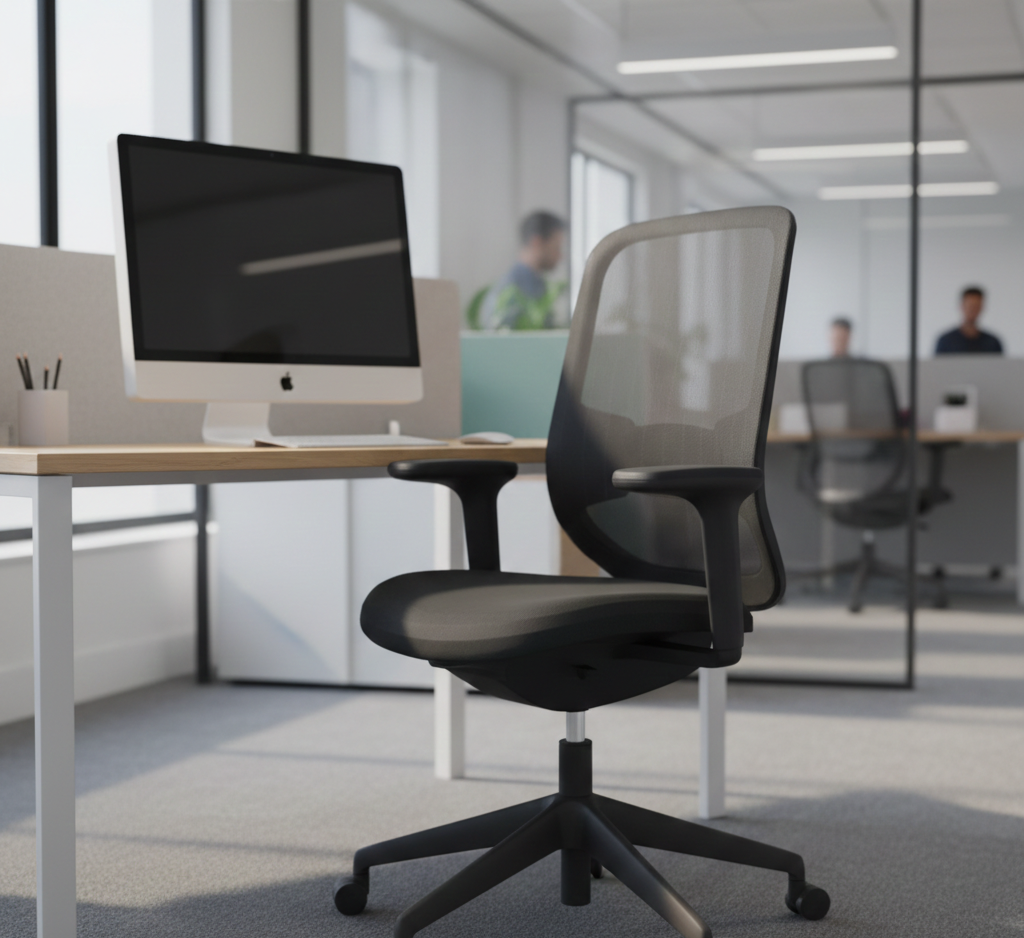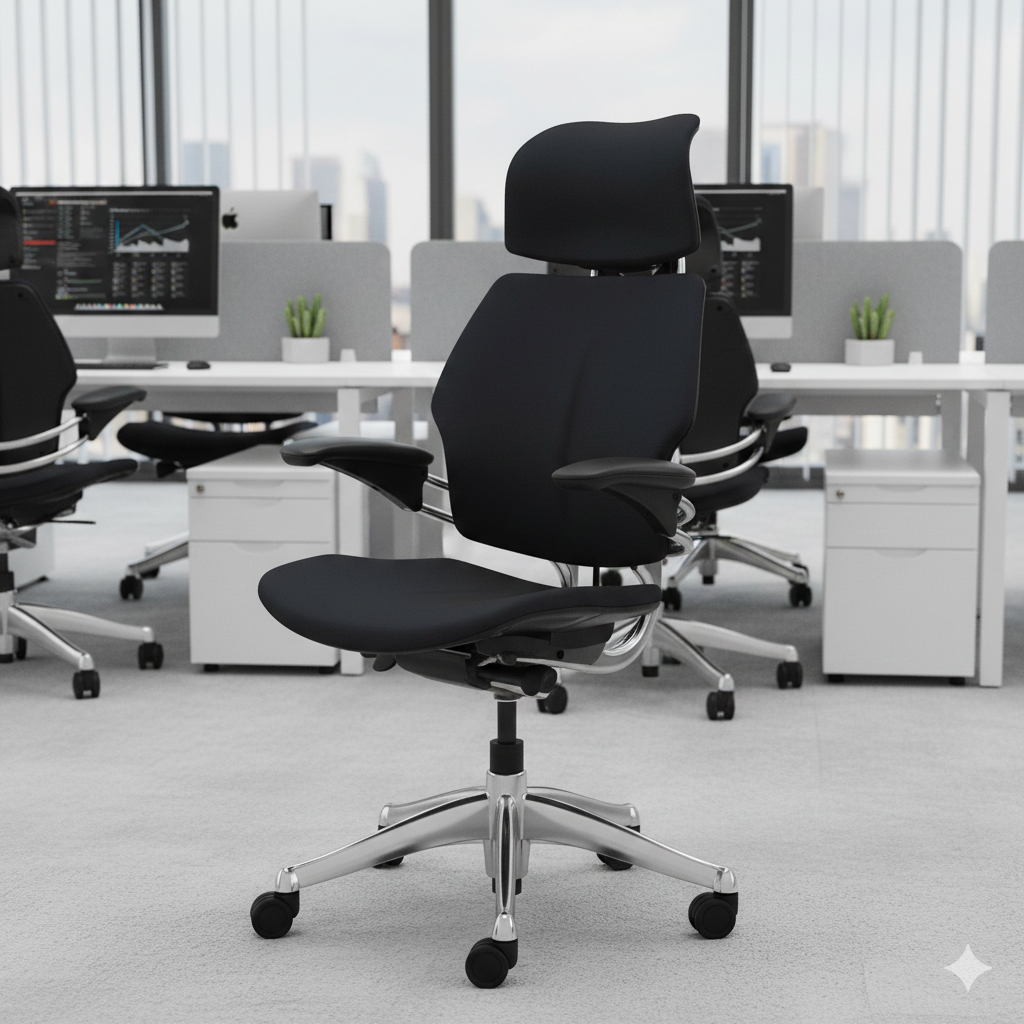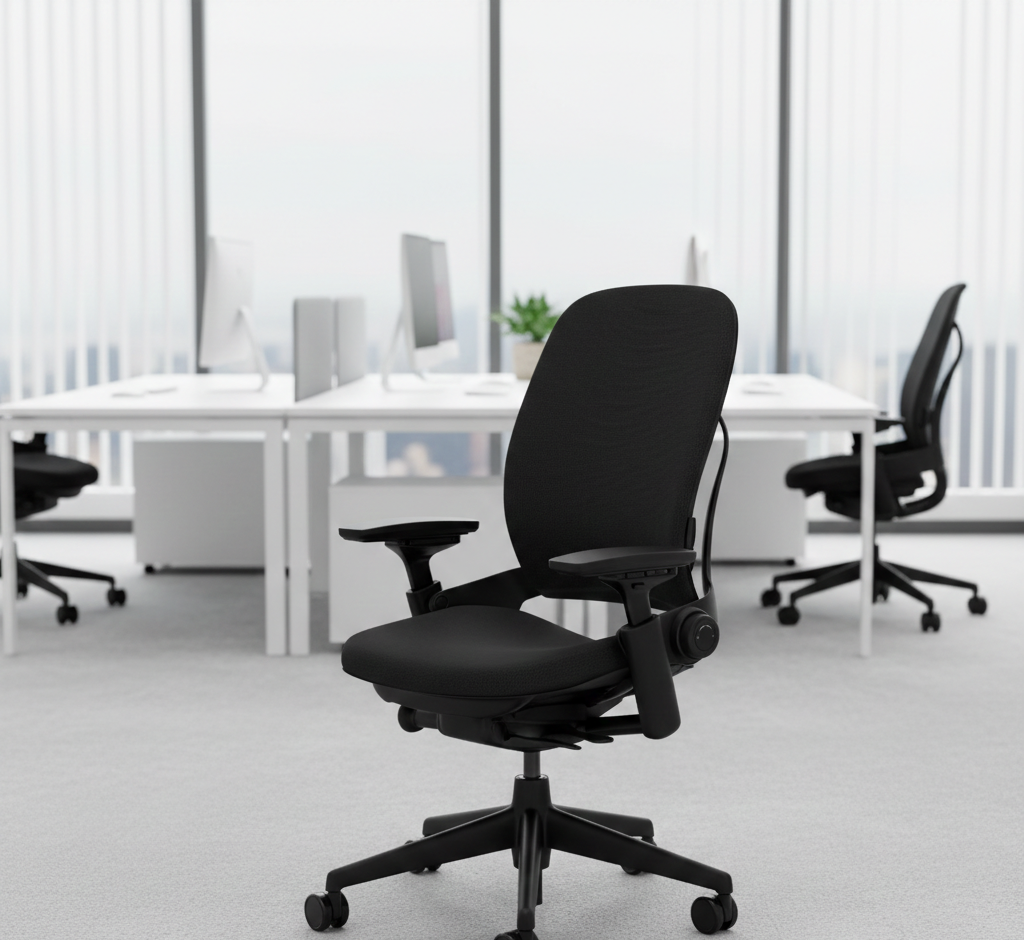How Do New Waste Rules Affect Office Chairs? Understanding POPs & Proper Disposal
Making Sense of the Confusing Environment Agency Guidance
New rules came into effect from 1st January that mean that certain items of unwanted furniture known to contain Persistent Organic Pollutants, or POPs, must be dealt with differently when they are no longer wanted or when they reach the end of their useful life and require disposal. Current guidance is a bit contradictory and confusing, so here’s a quick run-down to help you understand how it affects you.
The foams and coverings of some upholstered furniture items contain POPs. These are chemicals that are used to give furnishings their fire retardant properties. The manufacture, sale and use of products containing POPs is now banned under The Persistent Organic Pollutants Regulations 2007.
At the start of the year, the Environment Agency in England introduced new rules that stipulate what must happen to waste domestic seating that contains POPs.
This is where the confusion starts.
Contradictory guidance
In its official guidance, the Environment Agency tells us that ‘waste domestic seating is any item of seating of a household type from households or businesses that is waste.’
It goes on to list the following examples of items that are affected by the rule change:
- sofas
- sofa beds
- armchairs
- kitchen and dining room chairs
- stools and foot stools
- home office chairs
- futons
- bean bags, floor and sofa cushions
So that’s domestic seating, of a household type, but that can also arise in business premises, including home office chairs but not commercial office chairs.
You can see why we think it’s confusing for people.
We’ve had it checked with the Environment Agency to get some clarity on proper office chairs, and its position seems to be this: until evidence emerges that says otherwise, assume that any foams and textile covers on commercial office chairs also contain POPs and deal with them accordingly when they become waste.
Why is hasn’t just said this in its published guidance is a bit of a mystery, and you may see us making that point and asking for greater clarity in the media.
What do you have to do with commercial office chairs that are waste?
If you have badly damaged or end-of-life office chairs that you’re discarding, you have to ensure that the POPs materials are destroyed or irreversibly transformed. In practice, this means incinerated.
But don’t panic at the idea of paying a fortune to incinerate entire chairs (even though we’ve seen a number of waste management companies out there telling their clients that’s exactly what has to happen).
Again, having had it checked with the Environment Agency, we can confirm it's acceptable for furniture containing POPs to be broken down so that only the affected components and materials have to be incinerated - everything else can be reused or recycled provided that it is not contaminated with POPs.
We’re already set up for this. Any waste office chairs sent to or collected by us for disposal will be carefully dismantled by hand, and the foams and covers sent for incineration. Everything else will either be used for spares and repairs, or recycled.
Can waste office chairs be refurbished?
This is less clear, and there’s some ambiguity in the published guidance, which tells us that upholstered domestic seating that is waste can only be refurbished if:
- it can be confirmed the item does not contain POPs
- all textiles and foam removed are managed as POPs waste and sent for incineration
- whoever does the refurbishment holds a suitable environmental permit or a T12 waste exemption for manually treating waste
So, we already have the T12 permit and can remove textiles and foams for incineration as if they contain POPs. It's the first requirement that’s confusing - does it mean before or after refurbishment?
We’re going to have this point checked with the Environment Agency and will then update this blog when we know more.
OK, but what about chairs that aren’t waste but we just no longer need?
We love office chairs like this where we can extend their working life and help businesses avoid costly and less environmentally sustainable alternatives.
Which is great, because after (yet more) checks with the Environment Agency, office chairs that are not waste, but may still contain these POPs materials, can be reused. The rules on this are that it only applies to office chairs that are non-waste, which means that the following conditions must be met:
- it is reused for the same purpose for which it was designed
- the previous holder intended for it to be reused
- no more than minor repair is required to it
- both the previous holder and new holder know at the point of transfer that it does not need more than minor repair
- if a repair is required, it will be done
- its use keeps to the law, for example it carries appropriate fire safety labels
- it is managed as a non-waste – that is, it is not moved or stored in a way that will damage it, for example in a skip with items of waste
We know we can meet these requirements with you, and so will still be collecting or receiving your unwanted, surplus and non-waste office chairs to spruce them up and sell them on!
Latest Developments: December 2023
The latest developments in Persistent Organic Pollutants (POPs) waste recycling are quite multifaceted, covering regulatory, technological, and methodological advancements.
- Regulatory Updates: As of December 29, 2022, a new Regulation on Persistent Organic Pollutants (POPs) has come into force. This regulation introduces legal obligations to protect human health and the environment from harmful chemicals found in waste. For the first time, it sets limits on certain chemicals in waste and tightens existing limits on others. This step is crucial in preventing these harmful substances from re-entering the economy and is a strong commitment by the EU towards a toxic-free environment. It aligns with the objectives of the Circular Economy Action Plan, the Zero Pollution Action Plan, and the Chemicals Strategy for Sustainability.
- Technological Advancements in Photocatalysis: One of the emerging technologies in the degradation of POPs is photocatalysis. This method uses solar energy to break down pollutants, making it a greener alternative to other advanced oxidation technologies (AOTs) like UV-based photocatalysis, ozonation, and electrochemical oxidation. Despite its potential, photocatalysis faces challenges like longer reaction times, lower efficiency, and less recyclability. Ongoing technological advancements are focused on enhancing the efficiency and practical feasibility of this method, including the development of more efficient photocatalyst and reactor designs.
- Other Recycling Technologies: The recycling industry is also seeing a rise in the use of smart waste bins, AI-powered sorting robots, and advanced recycling processes. These innovations aim to improve the efficiency of recycling processes and the quality of recycled materials. For instance, Clean Robotics has developed a smart recycling bin named TrashBot, which uses AI and robotics to sort waste with high accuracy, thereby reducing human error.
- Bioplastics Development: There's a growing focus on bioplastics, made from renewable resources like corn starch and sugarcane. These materials offer a sustainable alternative to traditional plastics and have the potential to reduce reliance on fossil fuels and decrease greenhouse gas emissions. However, their disposal requires specific conditions for effective degradation.
- Plastic Recycling Innovations: The field of plastic recycling is witnessing several breakthroughs, notably in chemical recycling. This process breaks down plastics into their constituent parts for reuse. For example, the partnership between Unilever and Ioniqa has developed technology to break down PET plastic waste into base molecules for creating new, high-quality plastic.
- Digital Transformation in Recycling: Digital transformation is making recycling processes more efficient and effective, with innovations in smart waste management systems and data-driven decision-making. However, this trend also brings challenges like data security and privacy concerns.
These developments represent a concerted effort across various sectors to tackle the challenges posed by POPs and other pollutants in waste, driving towards safer, more sustainable waste management and recycling practices.




